-
 bitcoin
bitcoin $87959.907984 USD
1.34% -
 ethereum
ethereum $2920.497338 USD
3.04% -
 tether
tether $0.999775 USD
0.00% -
 xrp
xrp $2.237324 USD
8.12% -
 bnb
bnb $860.243768 USD
0.90% -
 solana
solana $138.089498 USD
5.43% -
 usd-coin
usd-coin $0.999807 USD
0.01% -
 tron
tron $0.272801 USD
-1.53% -
 dogecoin
dogecoin $0.150904 USD
2.96% -
 cardano
cardano $0.421635 USD
1.97% -
 hyperliquid
hyperliquid $32.152445 USD
2.23% -
 bitcoin-cash
bitcoin-cash $533.301069 USD
-1.94% -
 chainlink
chainlink $12.953417 USD
2.68% -
 unus-sed-leo
unus-sed-leo $9.535951 USD
0.73% -
 zcash
zcash $521.483386 USD
-2.87%
Chia Coin Pool Mining Tutorial
Chia coin mining leverages the unique Proof of Space and Time consensus mechanism, utilizing spare hard disk space instead of computational power to solve cryptographic puzzles.
Jan 10, 2025 at 06:13 am
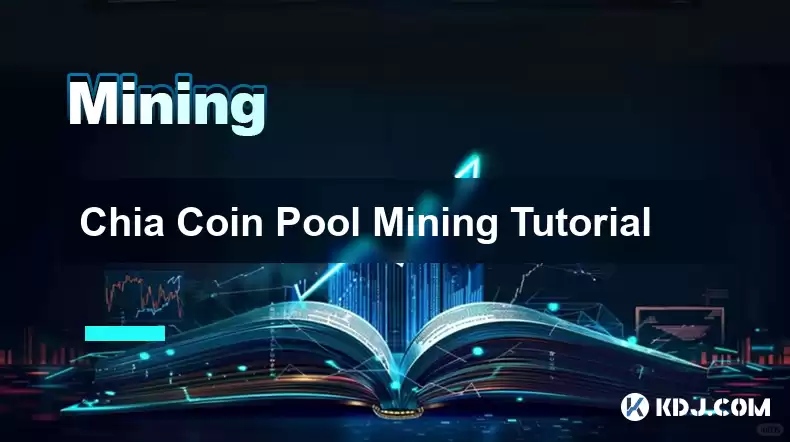
- Introduction to Chia coin mining
- Understanding the Chia blockchain and consensus mechanism
- Hardware and software requirements for Chia mining
- Configuring a Chia mining pool
- Troubleshooting common Chia mining issues
Chia coin is a decentralized cryptocurrency that employs a unique consensus mechanism called Proof of Space and Time (PoST). Unlike traditional Proof of Work (PoW) cryptocurrencies that require high computational power, Chia mining involves using spare hard disk space. This guide provides a comprehensive tutorial on how to join a Chia coin mining pool and maximize your earnings.
Understanding the Chia Blockchain and Consensus MechanismThe Chia blockchain is designed to be secure and scalable, leveraging a combination of PoST and Proof of Stake (PoS) mechanisms. In PoST, miners utilize hard disk space to solve cryptographic puzzles and earn rewards. PoS, on the other hand, involves holding and staking Chia coins to validate transactions and participate in block production.
Hardware and Software RequirementsTo mine Chia coins effectively, you will need a computer with:
- Ample hard disk space (minimum 10TB recommended)
- At least 4GB of RAM
- A processor with multiple cores
- A stable internet connection
In terms of software, you will need:
- Chia client: Official software from Chia Network
- MadMax plotter: Third-party plotting software
Joining a Chia mining pool allows you to combine your resources with other miners, increasing your chances of earning rewards. Below are steps to configure a Chia pool:
- Join a reputable Chia mining pool (recommended: Flexpool, HPool, F2Pool)
- Create a user account in the chosen pool
- Generate an XCH wallet address (a Chia-specific wallet that stores your Chia coins)
- Enter your miner's address and XCH wallet address in the pool's configuration settings
- Low performance: Increase the amount of hard disk space allocated to Chia mining.
- Errors during plotting: Ensure you are using the latest version of MadMax plotter and have sufficient free space on your hard drive.
- Unable to connect to the pool: Check your internet connectivity and ensure the pool's servers are operational.
- What is the minimum amount of hard disk space required to mine Chia coins? 10TB recommended
- Is it profitable to mine Chia coins? Profitability varies based on factors such as hardware costs, electricity rates, and market conditions.
- Can I mine Chia coins on a laptop? Technically yes, but it is not recommended due to low hard disk space and limited computing power.
- What is the difference between PoW and PoST mining? PoW requires high computational power, while PoST utilizes hard disk space.
- How often are Chia blocks produced? Approximately every 10 minutes
- What is the reward for mining a Chia block? 2 Chia coins (approximately $800) plus transaction fees
- Where can I buy Chia coins? Binance, Coinbase, and Kraken
- Is Chia mining electricity-intensive? No, as it primarily uses hard disk space rather than computational power
- Is it legal to mine Chia coins? Yes, in most jurisdictions
- What is the future of Chia mining? The long-term profitability of Chia mining remains uncertain, influenced by market conditions and technological advancements.
Disclaimer:info@kdj.com
The information provided is not trading advice. kdj.com does not assume any responsibility for any investments made based on the information provided in this article. Cryptocurrencies are highly volatile and it is highly recommended that you invest with caution after thorough research!
If you believe that the content used on this website infringes your copyright, please contact us immediately (info@kdj.com) and we will delete it promptly.
- Tokenization, Stablecoins, Remittances: The New York Minute for Global Finance
- 2026-02-01 19:20:01
- BlockDAG Poised for 100x Crypto Opportunity as Presale Enters Final Hours, Promising Massive Gains
- 2026-02-01 19:20:01
- Circle Charts Bold Course: Stablecoins to Reshape Global Finance by 2026
- 2026-02-01 19:25:01
- Big Apple Bites into Blockchain: Ethereum DApps, Exchanges, and Games Navigate a Shifting Crypto Tide
- 2026-02-01 19:15:01
- Cryptocurrency Presales and Pumpfun: The Big Apple's Bold Bet on Digital Gold Rush
- 2026-02-01 19:15:01
- Pi Network Bolsters Mainnet Migration and KYC Enhancements Amidst Ecosystem Growth
- 2026-02-01 19:10:02
Related knowledge

How to Earn Passive Income with DePIN Mining? (New Trend 2026)
Feb 01,2026 at 12:40pm
Understanding DePIN Mining Mechanics1. DePIN mining relies on real-world infrastructure participation rather than computational hashing. Users deploy ...

How to Mine Bitcoin on Mac (M1/M2/M3)? (Software Tutorial)
Feb 01,2026 at 07:19pm
Understanding Bitcoin Mining on Apple Silicon1. Bitcoin mining relies on solving cryptographic puzzles using computational power, and Apple’s M1, M2, ...
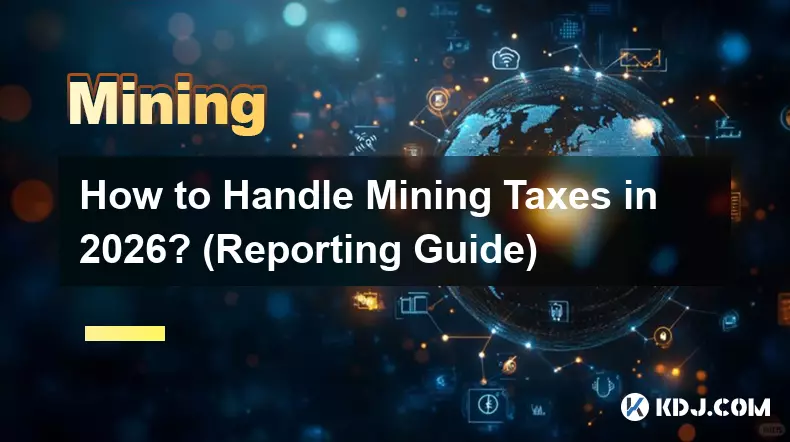
How to Handle Mining Taxes in 2026? (Reporting Guide)
Feb 01,2026 at 01:39am
Tax Classification of Mining Rewards1. Cryptocurrency mining rewards are treated as ordinary income at the fair market value on the date of receipt. 2...
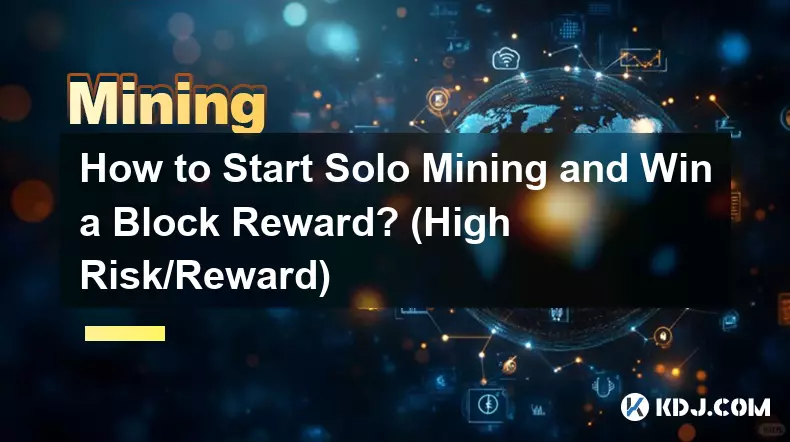
How to Start Solo Mining and Win a Block Reward? (High Risk/Reward)
Feb 01,2026 at 06:40am
Understanding Solo Mining Mechanics1. Solo mining means operating a full node and attempting to solve cryptographic puzzles independently without join...
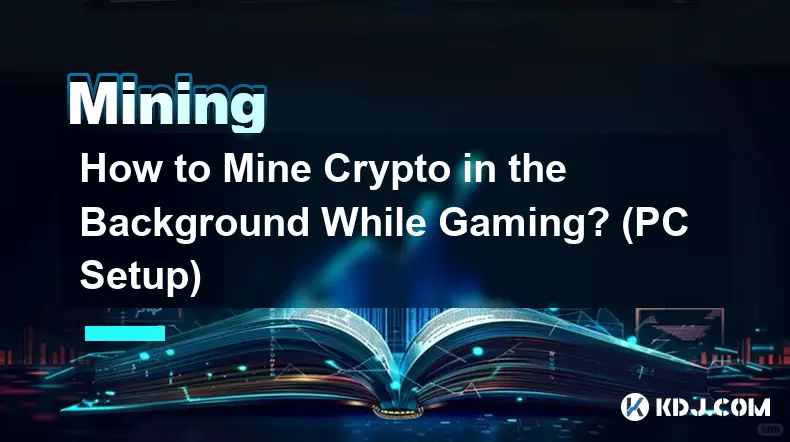
How to Mine Crypto in the Background While Gaming? (PC Setup)
Feb 01,2026 at 01:20pm
Optimizing GPU Utilization During Gaming Sessions1. Modern gaming GPUs often idle certain shader units or memory bandwidth during less demanding scene...
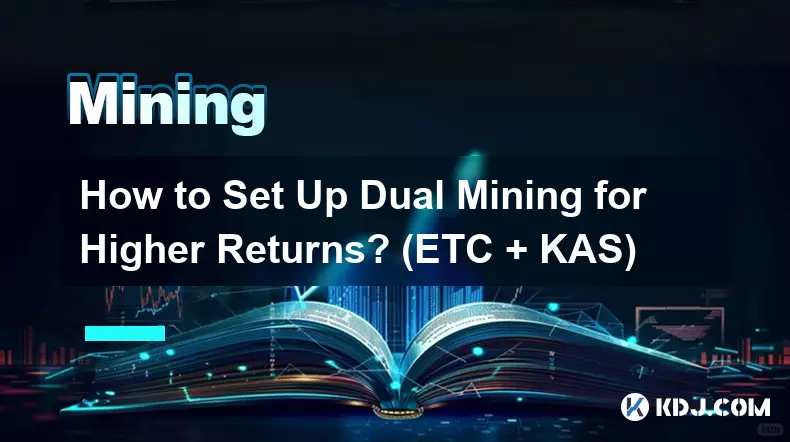
How to Set Up Dual Mining for Higher Returns? (ETC + KAS)
Feb 01,2026 at 02:19am
Dual Mining Fundamentals1. Dual mining allows a single GPU to simultaneously contribute computational power to two different blockchains using compati...

How to Earn Passive Income with DePIN Mining? (New Trend 2026)
Feb 01,2026 at 12:40pm
Understanding DePIN Mining Mechanics1. DePIN mining relies on real-world infrastructure participation rather than computational hashing. Users deploy ...

How to Mine Bitcoin on Mac (M1/M2/M3)? (Software Tutorial)
Feb 01,2026 at 07:19pm
Understanding Bitcoin Mining on Apple Silicon1. Bitcoin mining relies on solving cryptographic puzzles using computational power, and Apple’s M1, M2, ...

How to Handle Mining Taxes in 2026? (Reporting Guide)
Feb 01,2026 at 01:39am
Tax Classification of Mining Rewards1. Cryptocurrency mining rewards are treated as ordinary income at the fair market value on the date of receipt. 2...

How to Start Solo Mining and Win a Block Reward? (High Risk/Reward)
Feb 01,2026 at 06:40am
Understanding Solo Mining Mechanics1. Solo mining means operating a full node and attempting to solve cryptographic puzzles independently without join...

How to Mine Crypto in the Background While Gaming? (PC Setup)
Feb 01,2026 at 01:20pm
Optimizing GPU Utilization During Gaming Sessions1. Modern gaming GPUs often idle certain shader units or memory bandwidth during less demanding scene...

How to Set Up Dual Mining for Higher Returns? (ETC + KAS)
Feb 01,2026 at 02:19am
Dual Mining Fundamentals1. Dual mining allows a single GPU to simultaneously contribute computational power to two different blockchains using compati...
See all articles
























![[Audio stories] Streamer Became a Billionaire Overnight After Buying One Junk Coin [Audio stories] Streamer Became a Billionaire Overnight After Buying One Junk Coin](/uploads/2026/02/01/cryptocurrencies-news/videos/origin_697eaa9a495ed_image_500_375.webp)

















































